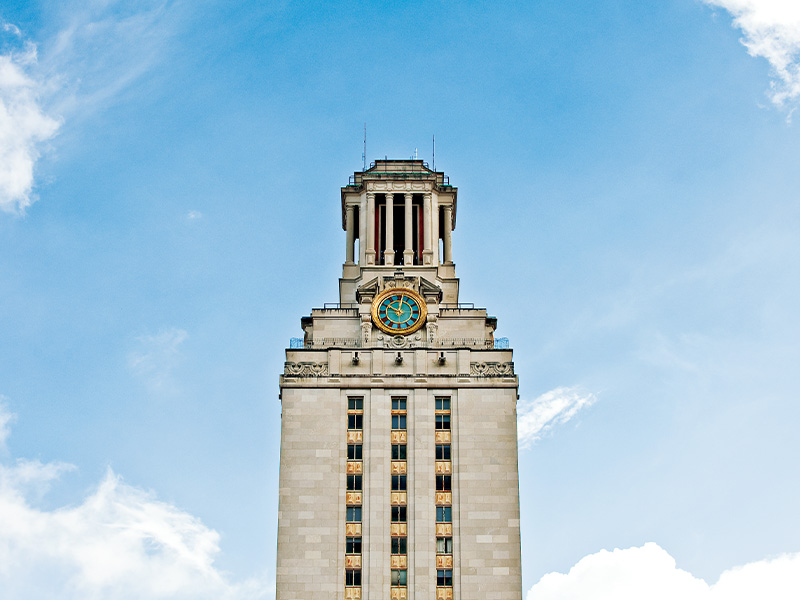Central Texas Students Investigated Nanotechnology During First LEGO League Tournament

For the third consecutive year, The College of Engineering at The University of Texas at Austin, National Instruments (NI), the National Instruments Foundation, Silicon Laboratories and SpawGlass teamed up to give more than 300 students ages nine to 14 the opportunity to develop robots and explore the benefits of nanotechnology for the Central Texas FIRST LEGO League Championship Tournament on Jan. 6. This year, NanoKnights, a team of home-schooled students from San Antonio, received the prestigious Champion’s Award for presenting the best technical robot design and representing FIRST LEGO League values in its work. The National Instruments Foundation will sponsor the team to compete nationally at the FLL World Festival in Atlanta this April.
FIRST LEGO League, created in 1998 through the partnership of For Inspiration and Recognition of Science and Technology (FIRST) and The LEGO Company, is a program that helps more than 80,000 young people worldwide discover the fun of science and technology by encouraging participants to construct fully autonomous robots. This year’s challenge, “NanoQuest,” featured a series of missions geared toward exposing children to the technical innovation made possible through the development of nanotechnology. Nanotechnology is a branch of science and engineering devoted to the design and production of extremely small electronic devices and circuits built from individual atoms and molecules. Teams competed in the tournament by designing, building and programming robots with LEGO® MINDSTORMS® technology, with programming software based on National Instruments LabVIEW.
“FIRST LEGO League brings engineering and science alive for students,” said Ben Streetman, dean of The College of Engineering at the University. “Through FIRST LEGO League, children use creative thinking, teamwork and problem solving to explore tangible, important scientific concepts such as nanotechnology. We hope the lessons these kids learn throughout the competition will inspire them to consider careers in science or engineering.”
In addition to the robot game portion of the competition, teams also researched and presented information concerning a particular issue of nanotechnology and the impact of the field they studied. It is believed in the scientific community that nanotechnology offers better built, longer lasting, safer and smarter products for home, communication, medical, transportation and agricultural applications. Based on the research projects, each team presented its conclusions and suggestions to a panel of judges during the competition.
FIRST LEGO League (FLL) inspires future scientists and engineers. Guided by imagination and adult mentors, FLL students worldwide, ages nine to 14, face real-world engineering challenges and discover career possibilities by learning to make positive contributions to society. FLL is a result of a partnership between FIRST and The LEGO Company and offers the opportunity to design, build and program robots; use LEGO MINDSTORMS technology; learn teamwork; and research challenges today’s scientists face.
About the College of Engineering
The College of Engineering at The University of Texas at Austin ranks among the top six public engineering schools in the United States. With the nation’s fourth-highest number of faculty elected members of the National Academy of Engineering, the College’s more than 7,000 students gain exposure to the nation’s finest engineering practitioners. Appropriately, the College’s logo, an embellished checkmark used by the first UT Engineering dean to denote high-quality student work, is the nation’s oldest quality symbol.
About National Instruments
For 30 years, National Instruments has been a technology pioneer and leader in virtual instrumentation – a revolutionary concept that has changed the way engineers and scientists in industry, government and academia approach measurement and automation. Leveraging PCs and commercial technologies, virtual instrumentation increases productivity and lowers costs for test, control and design applications through easy-to-integrate software, such as NI LabVIEW, and modular measurement and control hardware for PXI, PXI Express, PCI, PCI Express, USB and Ethernet. Headquartered in Austin, Texas, NI has more than 4,000 employees and direct operations in nearly 40 countries. For the past seven years, FORTUNE magazine has named NI one of the 100 best companies to work for in America.
About Silicon Laboratories Inc.
Silicon Laboratories Inc. is a leading designer of high-performance, analog-intensive mixed-signal integrated circuits (ICs) for a broad range of applications. Silicon Laboratories’ diverse portfolio of highly integrated, patented solutions is developed by a world-class engineering team with decades of cumulative expertise in cutting-edge mixed-signal design. The company has design, engineering, marketing, sales and applications offices throughout North America, Europe and Asia.
